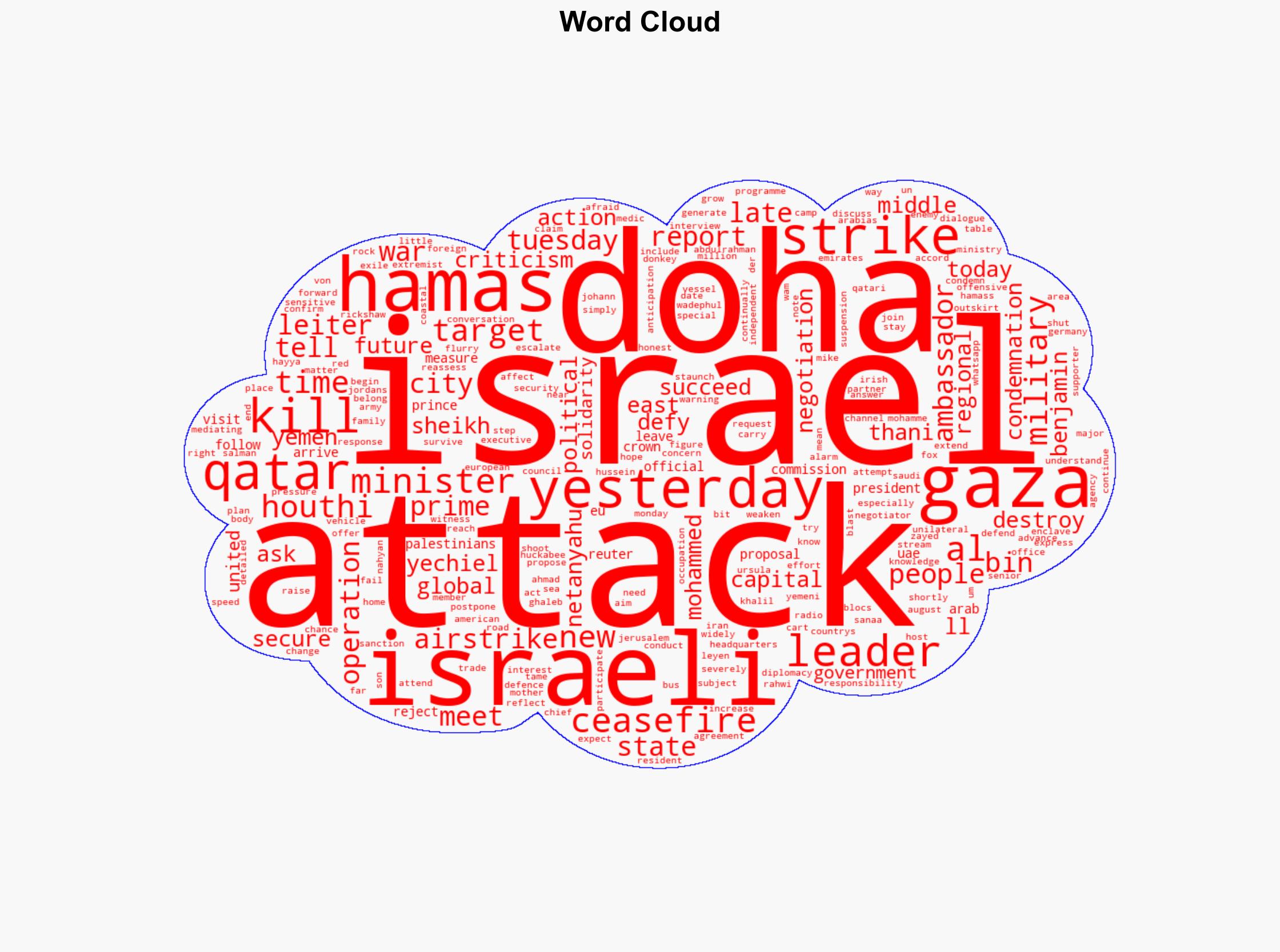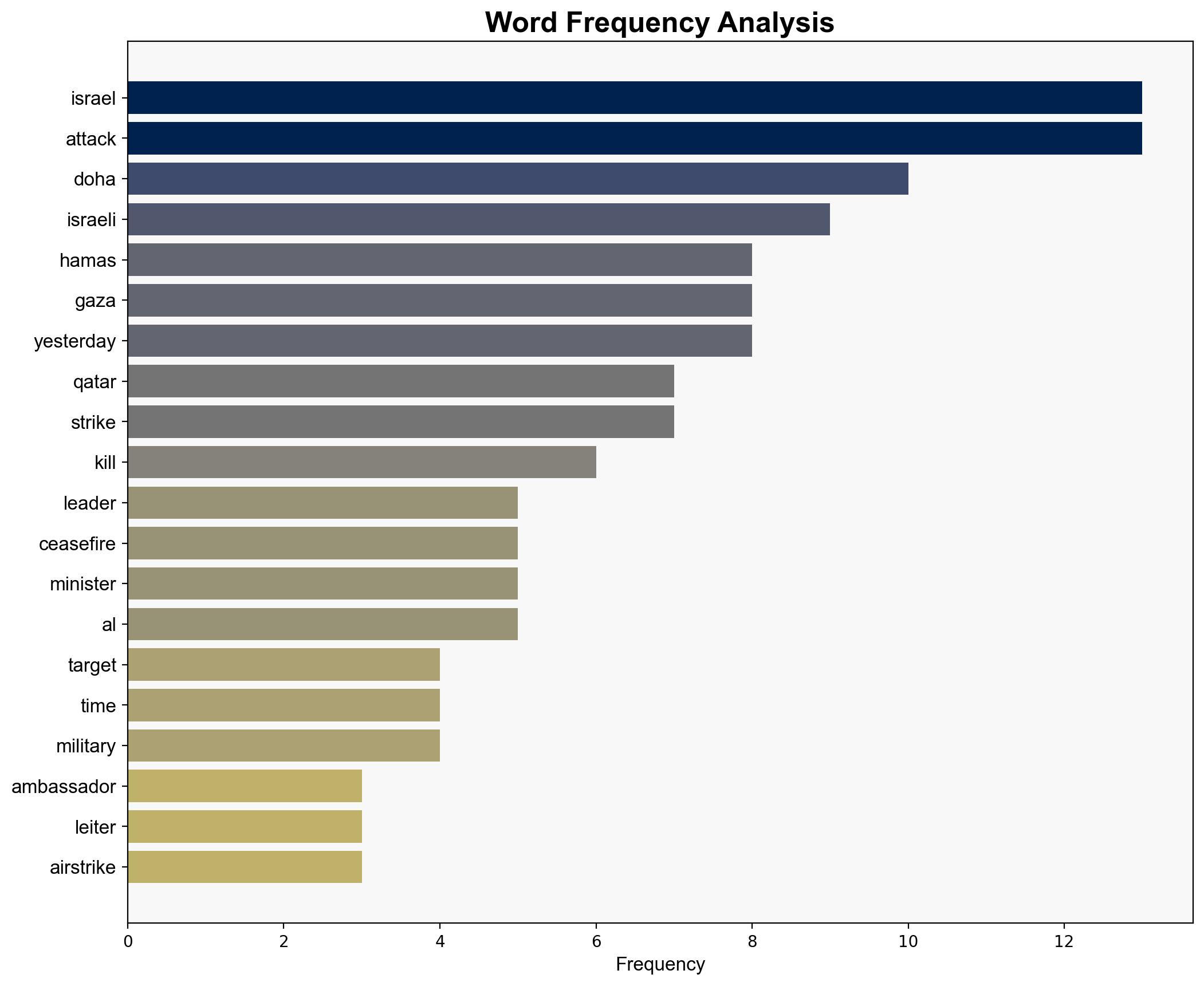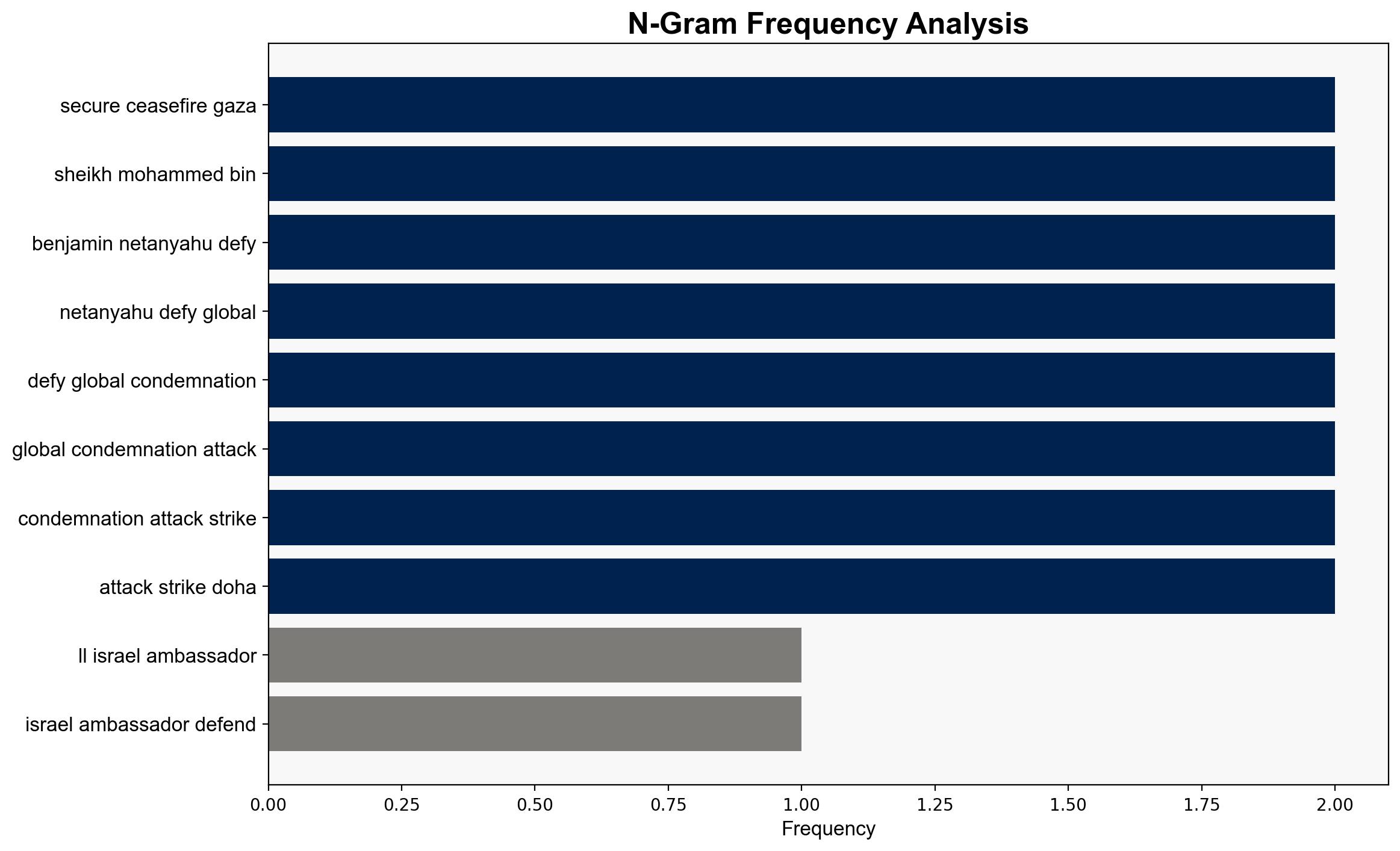Theyll get over it Israels US ambassador defends Qatar strike – Independent.ie
Published on: 2025-09-11
Intelligence Report: Theyll get over it Israels US ambassador defends Qatar strike – Independent.ie
1. BLUF (Bottom Line Up Front)
The Israeli airstrike in Qatar, targeting Hamas leadership, represents a significant escalation in the Middle East conflict. The most supported hypothesis suggests that Israel aims to disrupt Hamas operations and assert regional dominance, despite potential diplomatic fallout. Confidence level: Moderate. Recommended action: Engage in diplomatic efforts to de-escalate tensions and explore backchannel communications to prevent further regional destabilization.
2. Competing Hypotheses
1. **Hypothesis 1**: Israel’s strike in Qatar is a strategic move to dismantle Hamas leadership and weaken its operational capabilities, thereby enhancing Israeli security and regional influence.
– **Supporting Evidence**: The strike targeted high-value Hamas figures, indicating a focused effort to disrupt leadership. The operation aligns with Israel’s historical strategy of targeted assassinations to weaken adversaries.
2. **Hypothesis 2**: The strike is primarily a political maneuver by Israel to assert its stance against Hamas and Iran-backed entities, leveraging military action to gain domestic and international political capital.
– **Supporting Evidence**: The timing coincides with heightened tensions and global criticism, suggesting a possible attempt to shift narratives and consolidate support among allies.
3. Key Assumptions and Red Flags
– **Assumptions**: Both hypotheses assume Israel’s willingness to risk diplomatic relations for security or political gains. It is also assumed that Hamas leadership was indeed the primary target.
– **Red Flags**: Lack of detailed intelligence on the strike’s operational success and potential civilian casualties. The absence of corroborative evidence from independent sources raises questions about the strike’s efficacy and intent.
4. Implications and Strategic Risks
The strike risks escalating tensions across the Middle East, potentially drawing in regional powers like Iran and complicating US diplomatic efforts. Economic repercussions could arise from disrupted trade routes and increased oil prices. Cyber retaliation by Hamas or allied groups poses a threat to Israeli and allied infrastructure. The psychological impact on regional populations could fuel further unrest and radicalization.
5. Recommendations and Outlook
- Engage in multilateral diplomatic efforts to de-escalate tensions, involving key regional players and international organizations.
- Enhance intelligence-sharing mechanisms to monitor potential retaliatory actions by Hamas or allied groups.
- Scenario Projections:
- Best Case: Successful diplomatic intervention leads to a ceasefire and renewed peace talks.
- Worst Case: Escalation into broader regional conflict involving multiple state and non-state actors.
- Most Likely: Continued low-intensity conflict with sporadic escalations and diplomatic stalemates.
6. Key Individuals and Entities
– Yechiel Leiter
– Benjamin Netanyahu
– Sheikh Mohammed bin Abdulrahman Al Thani
– Khalil al-Hayya
– Ahmad Ghaleb al-Rahwi
– Sheikh Mohammed bin Zayed Al Nahyan
– Crown Prince Hussein
– Crown Prince Mohammed bin Salman
– Ursula von der Leyen
– Johann Wadephul
7. Thematic Tags
national security threats, regional focus, counter-terrorism, geopolitical strategy





